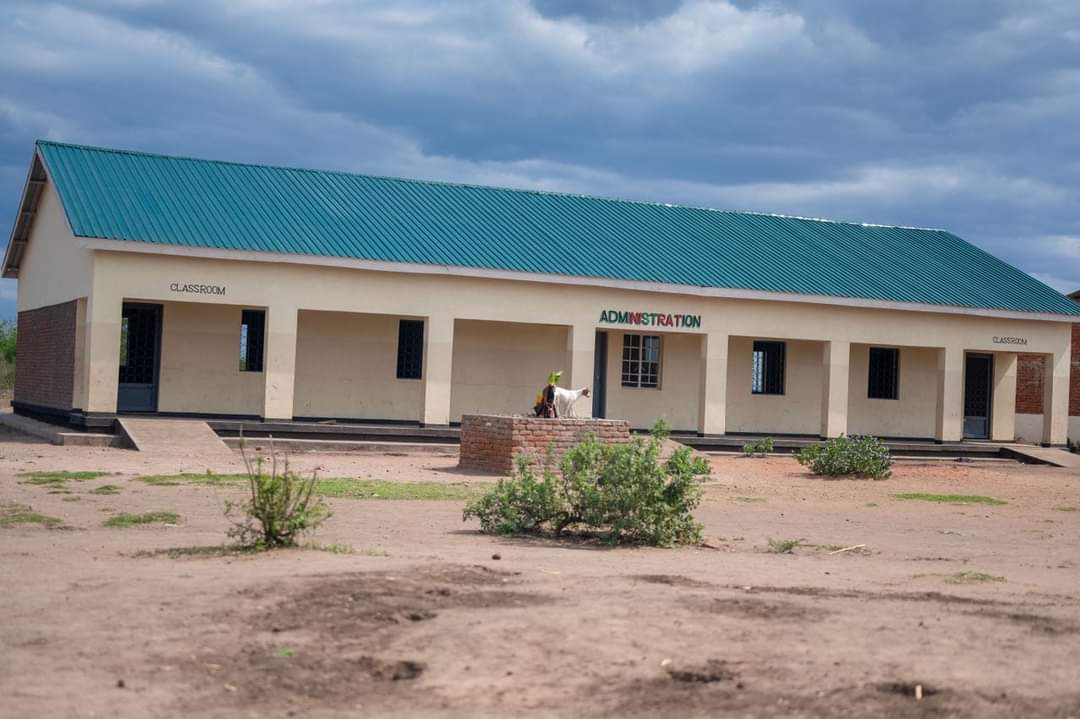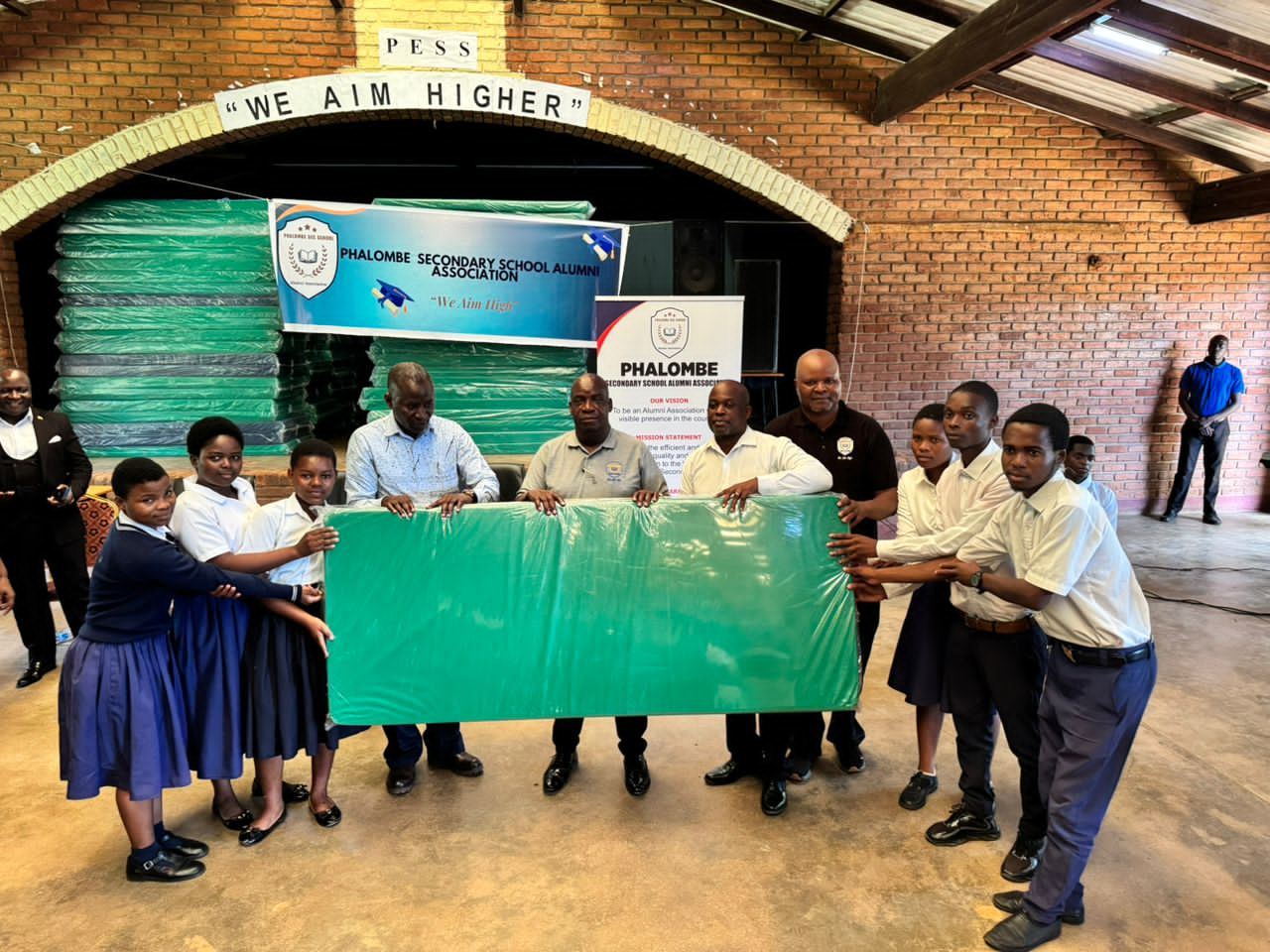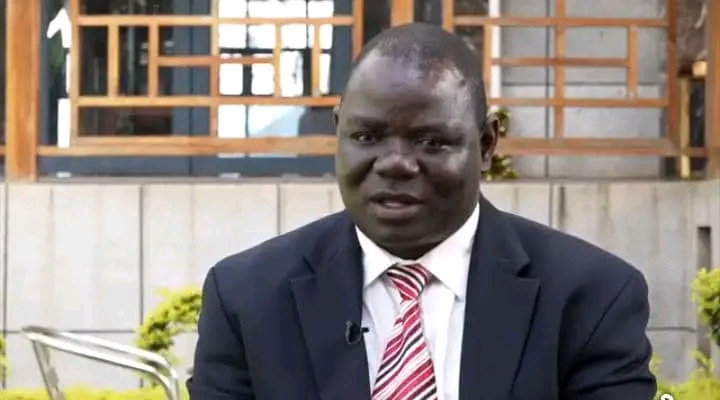Outdoor learning often comes with distractions, and most learners fail to concentrate on lessons due to numerous disturbances associated with learning in the open among the extreme hot and comfortability.
But in Chikwawa District, where temperatures can soar up to 44 degrees Celsius, learning outside the classroom in sweltering heat is a struggle for many young learners, and sometimes, it makes learning difficult.
Fourteen-year-old Ethel Limbikani, is a learner at Gombwa Junior Primary School which opened for learning in 2021 with an enrolment of 385 learners but only had a single classroom block.
“We were learning outside, and during rainfall, classes were disturbed. When hot, it was also difficult to concentrate while sitting under the scorching sun,” says Ethel.
Such hardships caught the attention of Chikwawa Nkombedzi Constituency, Member of Parliament, Abida Mia, who is also the Minister of Water and Sanitation.
“The sad background of Gombwa Junior Primary School inspired me to engage an extra gear towards improving education standards in my constituency. Most learners were learning in the outdoors, which exposed them to harsh weather conditions; hence my intervention to make a difference,” she explains.
Determined to create more conducive learning environments in her constituency, the MP mobilised K46. million from the Constituency Development Fund (CDF) and built a new classroom block at Gombwa Junior Primary School.
According to the schools head teacher, Chikwasha Simba Jimu, learners are no longer left at the mercy of harsh weather conditions, saying they comfortable, learning in a safe and well-structured space.
Jimu says the MP, Chikwawa District Council and other stakeholders closely monitored the CDF procurement process and made careful follow-ups on project funds.
“Through close scrutiny, we were able to monitor how the project was progressing together with local structures such as Area Development Committees (ADC), Village Development Committees (VDC) and project committees to ensure that community members had a stake in the project. The learning structure also transformed the physical landscape of the school and the attitudes of teachers and learners alike,
“The new classroom block has eased the burden of overcrowding, allowing teachers to conduct lessons in a comfortable environment while giving each learner the space they need to engage fully in their studies,” says Jimu.
Chikwawa District Councils Director of Education, Youth and Sports, Gertrude Zimba concurs with Jimu on the broad impact the development has on education in the district.
“The Ministry of Education recommends a classroom ratio of 1:60. However, in Chikwawa an average classroom has 132 learners.
“This reduces interaction between teachers and learners as overcrowded classrooms make it difficult for teachers to give each student the attention they deserve, ultimately impacting learning outcomes,” says Zimba.
She adds that quality classroom infrastructure is essential for delivering education that meets national and global standards.
Aligned with the Malawi 2063 vision, which prioritizes human capital development, investments in educational facilities play a crucial role in building the foundation for a skilled and educated population.
The new classrooms also support Sustainable Development Goal 4, which aims for inclusive and equitable quality education for all.
To ensure the classroom block remains in good condition, Zimba emphasises a collaborative approach.
“We will work together with teachers, learners, and the community and the district council will allocate funds for ongoing maintenance, safeguarding this valuable resource for future generations,” she adds.
Meanwhile, Senior Group Village Head, Nzangaya expresses gratitude to both the government and Mia for working to improve education standards in the area.
He adds: “Our children were covering about six kilometres on foot to the nearby school, but this new classroom block will ease our childrens tiresome treks to other schools.
“We have already employed two security guards to help us safeguard the new classroom block for the benefit of future students.”
Quality classroom infrastructure is essential for delivering education that meets national and global standards. Aligned with the Malawi 2063 vision, which prioritizes human capital development, investments in educational facilities play a crucial role in building the foundation for a skilled and educated population. Such projects also support Sustainable Development Goal 4, which aims for inclusive and equitable quality education for all.




